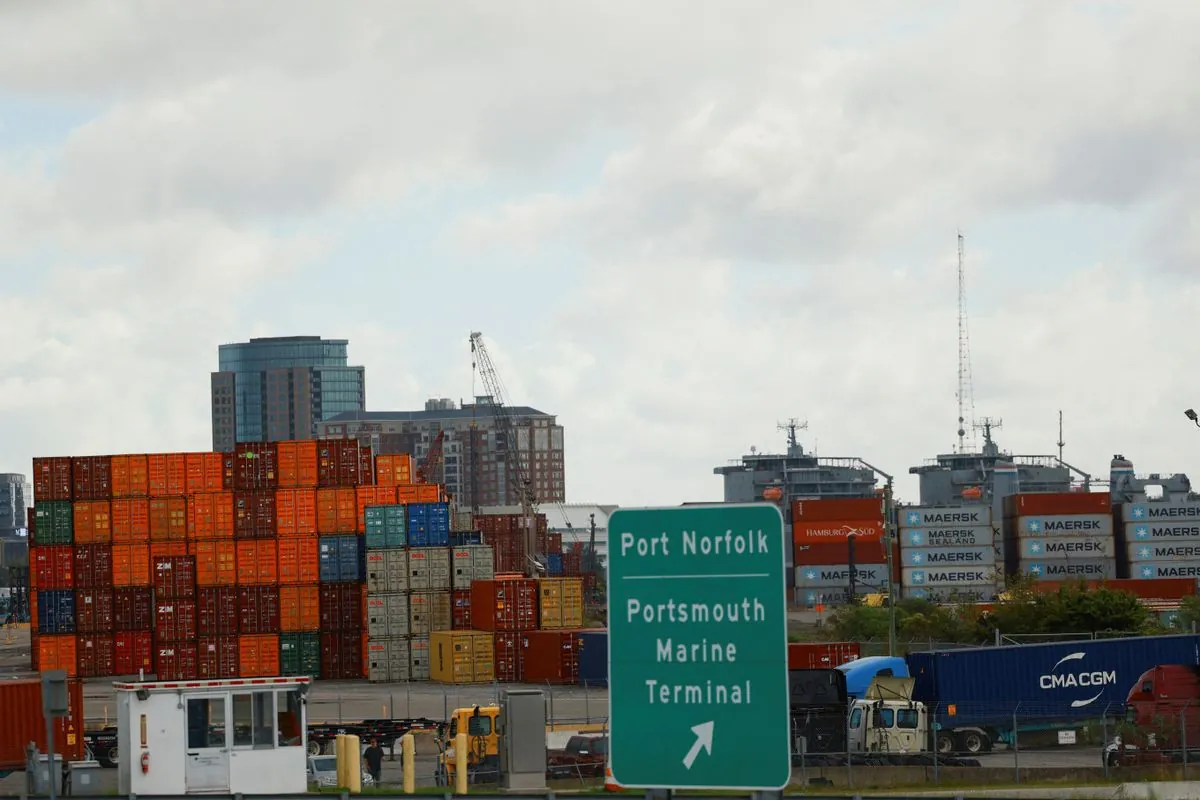U.S. East and Gulf Coast ports have resumed operations following a brief but impactful strike by dockworkers. The work stoppage, which lasted three days, concluded on October 4, 2023, after the International Longshoremen's Association (ILA) and the United States Maritime Alliance (USMX) reached a tentative agreement on wages.
The strike, involving 45,000 port workers, was the first major work stoppage in the industry since 1977. It affected 36 ports from Maine to Texas, including some of the busiest container terminals in the country. The Port of New York and New Jersey, the largest on the East Coast, was among those impacted by the strike.
The wage deal, which ended the strike, includes a substantial 62% increase over six years, raising average hourly wages from $39 to $63. This agreement marks a significant victory for the workers, who are represented by the ILA, an organization founded in 1892.
The strike's resolution came sooner than anticipated, causing a ripple effect in the shipping industry. Asian markets saw shipping company stocks tumble, with Taiwanese firms Evergreen Marine, Wan Hai Lines, and Yang Ming Marine experiencing drops between 8.8% and 10%.
During the work stoppage, at least 54 container ships were left queuing outside the affected ports, according to data from Everstream Analytics. This backlog threatened potential shortages of various goods, from bananas to auto parts. The Port of Wilmington in Delaware, known as the top banana port in North America, was among those affected.
The economic impact of the strike was substantial, with JP Morgan analysts estimating a cost of approximately $5 billion per day to the U.S. economy. Retailers, who account for about half of all container shipping volume, were particularly vulnerable to the disruption. Major companies like Walmart, IKEA, and Home Depot heavily rely on East and Gulf Coast ports for their operations.
The strike's end is welcome news for the U.S. economy, as stated by the National Retail Federation. However, the organization emphasized the importance of reaching a final deal on all outstanding issues.
While the wage agreement has been settled, negotiations continue on other matters, including the contentious issue of port automation. Workers express concerns that increased automation could lead to job losses, a topic that remains unresolved.
The U.S. maritime industry has seen significant changes over the years. The introduction of container shipping in the 1950s revolutionized global trade, and more recent developments, such as the Panama Canal expansion in 2016, have allowed larger ships to access East Coast ports.
As ports reopen and operations resume, the focus now shifts to clearing the backlog of ships and cargo. The efficiency of this process will be crucial in minimizing further economic impacts and ensuring the smooth flow of goods across the country.
"The decision to end the current strike and allow the East and Gulf coast ports to reopen is good news for the nation's economy. The sooner they reach a (final) deal, the better for all American families."
This recent strike and its resolution highlight the ongoing challenges and evolving dynamics in the U.S. maritime industry. As ports like the Port of Savannah, the fourth-busiest container port in the United States, work to clear the backlog, the industry continues to adapt to changing technologies and labor relations in an ever-globalizing economy.
